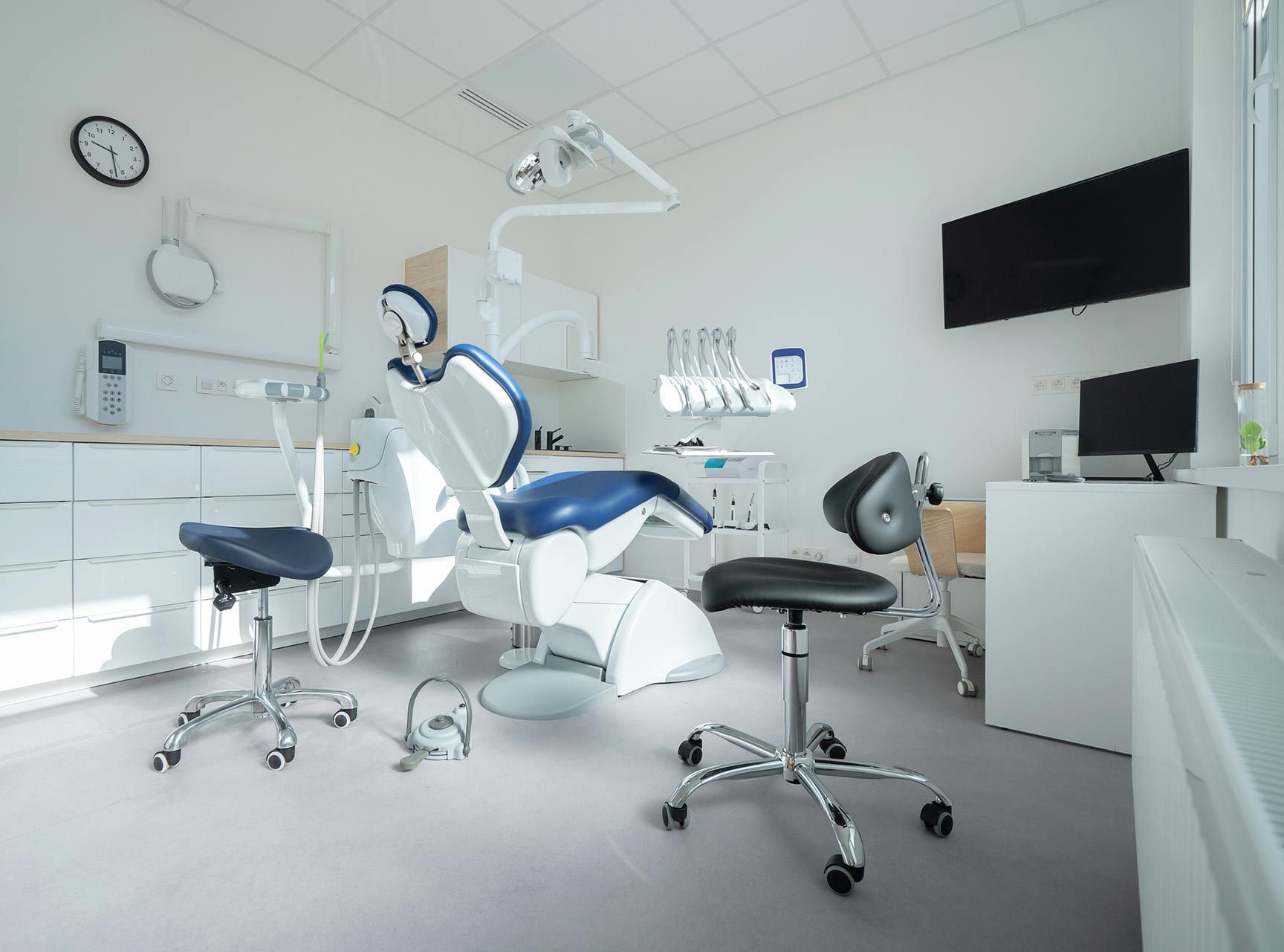Frequently Asked Questions & Dental Resources
SMILE Design in Munster, IN, has compiled a list of our most asked questions as a resource for our new patients. If you don't see the answer here, don't hesitate to get in touch with us to learn more. To learn more or to schedule a dental exam, call 219-836-5656 today.

-
What should I do if I have bad breath?
Bad breath (halitosis) can be an unpleasant and embarrassing condition. Many of us may not realize we have bad breath, but everyone has it from time to time, especially in the morning. There are various reasons one may have bad breath. Still, in healthy people, the primary reason is due to microbial deposits on the tongue, especially the back of the tongue. Some studies have shown that brushing the tongue reduces bad breath by as much as 70 percent.
-
What may cause bad breath?
- Morning time – Saliva flow almost stops during sleep, and its reduced cleansing action allows bacteria to grow, causing bad breath.
- Certain foods - like Garlic, onions, etc., contain odor-causing compounds that enter the bloodstream. They transfer to the lungs, where they are exhaled.
- Poor oral hygiene habits – Food particles in the mouth promote bacterial growth.
- Periodontal (gum) disease – Colonies of bacteria and food debris residing under inflamed gums.
- Dental cavities and improperly fitted dental appliances – May also contribute to bad breath.
- Dry mouth (Xerostomia) – May be caused by certain medications, salivary gland problems, or continuous mouth breathing.
- Tobacco products – Dry the mouth, causing bad breath.
- Dieting – Certain chemicals called ketones are released in the breath as the body burns fat.
- Dehydration, hunger, and missed meals – Drinking water and chewing food increases saliva flow and washes bacteria away.
- Certain medical conditions and illnesses – Diabetes, liver and kidney problems, chronic sinus infections, bronchitis, and pneumonia- may contribute to bad breath.
Keeping a record of what you eat may help identify the cause of bad breath. Also, review your current medications, recent surgeries, or illnesses with us.
-
What can I do to prevent bad breath?
- Practice good oral hygiene – Brush at least twice daily with ADA-approved fluoride toothpaste and toothbrush. Floss daily to remove food debris and plaque between the teeth and the gum line. Brush or use a tongue scraper to clean the tongue and reach the back areas. Replace your toothbrush every 2 to 3 months. If you wear dentures or removable bridges, clean them thoroughly and place them back in your mouth in the morning.
- See us regularly – Get a check-up and cleaning at least twice a year.
- Stop smoking/chewing tobacco.
- Drink water frequently – Water will help keep your mouth moist and wash away bacteria.
- Use mouthwash/rinses – Some over-the-counter products only provide a temporary solution to mask unpleasant mouth odor.
In most cases, we can treat the cause of bad breath. If it is determined that your mouth is healthy, but bad breath is persistent, Dr. Gope may refer you to your physician to determine the cause of the odor and an appropriate treatment plan.
-
How often should I have a dental exam and cleaning?
It would be best to have your teeth checked and cleaned at least twice a year, though Smile Design or your dental hygienist may recommend more frequent visits.
Regular dental exams and cleaning visits are essential in preventing dental problems and maintaining the health of your teeth and gums. At these visits, your teeth are cleaned and checked for cavities. We also check and monitor many other factors to help detect, prevent, and maintain dental health. These include:
- Medical history review: Knowing the status of current medical conditions, new medications, and illnesses gives us insight into your overall and dental health.
- Examination of diagnostic x-rays (radiographs): Essential for detection of decay, tumors, cysts, and bone loss. X-rays also help determine tooth and root positions.
- Oral cancer screening: Check the face, neck, lips, tongue, throat, tissues, and gums for any signs of oral cancer.
- Gum disease evaluation: Check the gums and bone around the teeth for signs of periodontal disease.
- Examination of tooth decay: All tooth surfaces will be checked for decay with special dental instruments.
- Examination of existing restorations: Check current fillings, crowns, etc.
- Removal of calculus (tartar): Calculus is a hardened plaque left on the tooth for some time and is now firmly attached to the tooth surface. Calculus forms above and below the gum line and can only be removed with special dental instruments.
- Removal of plaque: Plaque is a sticky, almost invisible film that forms on the teeth. It is a growing colony of living bacteria, food debris, and saliva. The bacteria produce toxins (poisons) that inflame the gums. This inflammation is the start of periodontal disease!
- Teeth polishing: Removes stains and plaque not otherwise removed during toothbrushing and scaling.
- Oral hygiene recommendations: Review and recommend oral hygiene aids as needed (electric dental toothbrushes, special cleaning aids, fluorides, rinses, etc.).
- Review dietary habits: Your eating habits are vital to your dental health.
As you can see, a good dental exam and cleaning involve much more than just checking for cavities and polishing your teeth. We are committed to providing you with the best possible care, which will require regular check-ups and cleanings.
-
How can cosmetic dentistry help improve the appearance of my smile?
Suppose you feel somewhat self-conscious about your teeth or want to improve your smile. In that case, cosmetic dental treatments may be the answer to a more beautiful, confident smile.
Cosmetic dentistry has become very popular in the last several years due to the many advances in cosmetic dental procedures and materials available today and because patients are becoming more and more focused on improving their overall health; This includes dental prevention and having a healthier, healthier, whiter, more radiant smile.
We offer many cosmetic dental procedures to improve your teeth and enhance your smile. Depending on your needs, cosmetic dental treatments can change your smile dramatically. Ask us how you can improve the health and beauty of your smile with our cosmetic dentistry services.
Get all of your dental questions answered by calling 219-836-5656.





